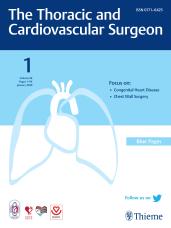Objective: Rheumatic mitral valve disease is considerably less common in North America and European countries than in developing countries, where rheumatic heart disease remains by far the leading cause of valvular diseases. This study was done to evaluate the midterm results over 15 years of mitral valve repair for rheumatic mitral regurgitation in term of survival rate and late valve failure and need for redo surgery (considering life-long risks of a prosthetic valve and cost-effectiveness).
Methods: This is a retrospective study from January 2004 to January 2019, 120 patients with rheumatic mitral valve disease underwent mitral valve repair in our hospital. Age ranged from 15 to 53 years, 80% patients were female. The lesions were pure mitral regurgitation in 95 (79.1%) patients, predominant mitral regurgitation with stenosis in 12 (10%), and predominant mitral stenosis with regurgitation in 13 (10.8%).
Results: Follow-up time ranged from 6 to 180 months, mean 96.4 ± 7.3 months. There were 10 late deaths. Survival at 5 years, 10 years and 15 years was 96.5%, 91.2% and 89.6% respectively. 25 patients (20.8%) patients had mitral regurgitation during follow-up, and 9 underwent reoperation with no hospital mortality. Freedom from reoperation at 5y, 10y and 15y was 93.5%, 82.7% and 79.4%, respectively. Progression of mitral regurgitation at 5,10, and 15 years was 71.4%, 59.3% and 52.8%, respectively. Freedom from all late events at 5,10 and 15 years were 72.6%, 54.2% and 51.4%, respectively.
Conclusions: Mitral valve repair for rheumatic mitral regurgitation is associated with a significant rate of valve failure and reoperation. However, it has a satisfactory survival rate and is a good alternative to valve replacement, especially for young female patients in child bearing period to avoid the life-long risks of a prosthetic valve and anticoagulation related problems.
KEYWORD: HVS-O-27
Acknowledgments
Disclosure Statement
The authors do not declare any conflict of interest.





